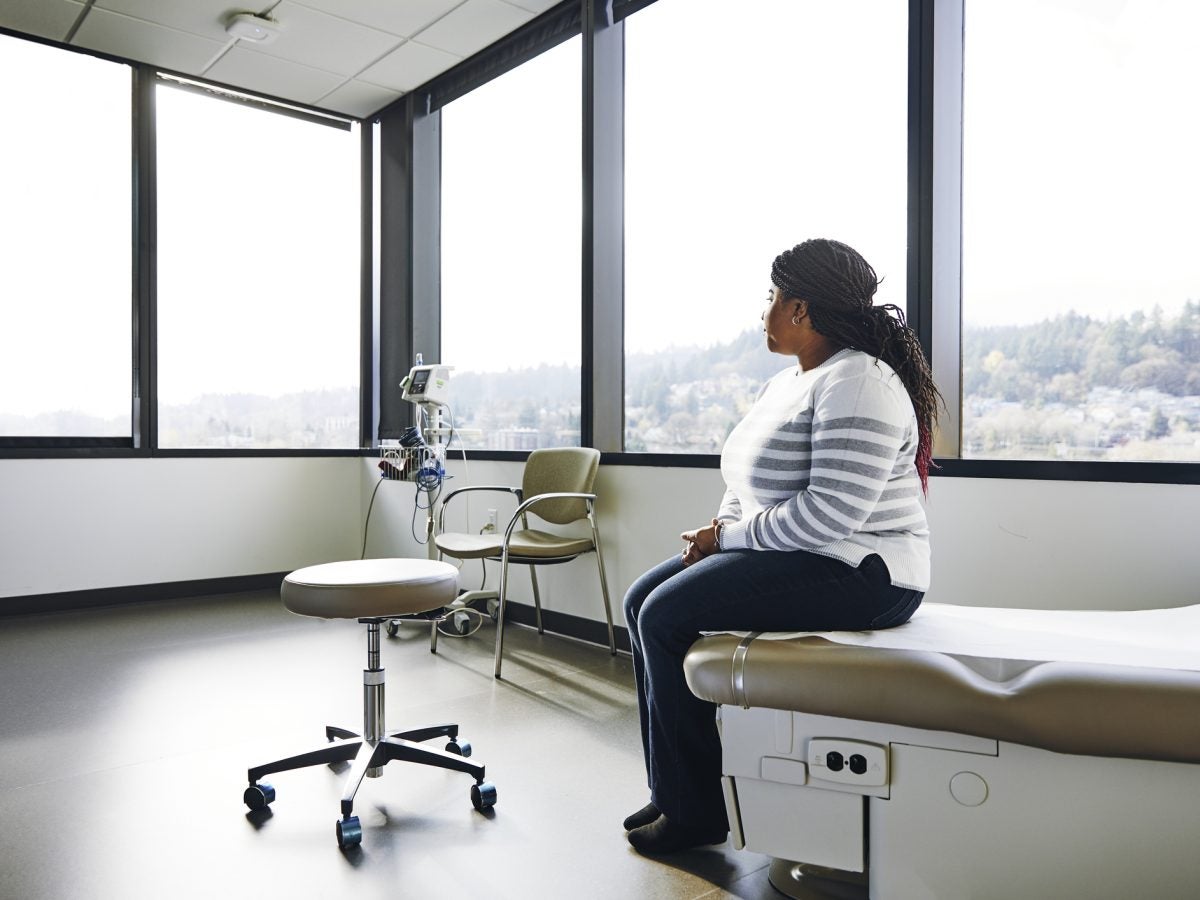
Black women are overrepresented in nearly every major category of health-related illness that exists when compared to their white counterparts. That includes obesity and diabetes to higher mortality rates and death in childbirth, among others. Despite embracing the self-care and wellness movement, it seems in the midst of those conversations we are forgetting to talk about the health piece of the equation.
Black people, for historical reasons surrounding lack of proper care, lack of access to medical treatment, and mistrust of the medical establishment (i.e., the Tuskegee experiment, Henrietta Lacks, and other examples), are still reluctant to seek medical attention, including for routine needs. Some are left seeking medical care when what is bothering them is often too late to be properly treated.
To find answers as to how we can better prioritize our healthcare needs and avoid falling into negative health categories, we spoke to Dr. Donna Adams-Pickett, PhD (MD) and Dr. Janella Thomas-Burse (MD and FACOG), both board-certified in obstetrics and gynecology and focus on women’s health and wellness. The first thing they note is to acknowledge what has been holding Black women back specifically.
“Being Black in America means living with chronic stress, which can have serious health consequences as severe as a single traumatic event,” Dr. Thomas-Burse says. “Black women are born into a stressful environment because of the color of our skin and our gender. The impacts of which manifest as chronic disease, both mentally and physically. We are worn out and so busy that we too often fall prey to the ease of fast and processed foods, and we succumb to the addictive chemicals in these foods. All of which makes us too tired to move.”
Dr. Adams-Pickett adds that, “Up until the last decade or so, the consideration of Black women has been largely absent in medical research, clinical protocols, and public policy measures that allow access to resources and early interventions that are needed for optimal health. The idea that Black women have specific genetic, physical, and cultural makeups that can uniquely impact our health was just not something that has been considered. The result has been, among other things, missed opportunities for prevention of adverse outcomes and poor responses for us to standard regimens that are successful for others. Essentially, a ‘one-size fits all’ approach to health does not fit Black women.”
Given how busy Black women are, the perception and expectation of the “strong Black woman” who can cope with pain and stress while carrying numerous other responsibilities, coupled with the fact that the health care system does not always serve our needs has been a deterrent to seeing a doctor when we need to. But it’s imperative that we re-prioritize our health above other competing life demands.
“It is critical that Black women remove the historic conditioning to ignore our pain and discomfort. We laugh at comedians and social media videos that joke about Black mothers minimizing illness compared to mothers of other ethnicities. But the underlying sentiment is that being sensitive to our physicality is a weakness,” says Dr. Adams-Pickett. “We are taught to ‘shake it off’ and ‘push through’ when our body is signaling that it is in distress or off-kilter. This programming creates the belief system that our health has no value. Flipping that script, reclaiming the idea that our bodies are worthy of the attention, the time, the effort, over any other obligations in our life, is a necessary first step.”
“We have to be as intentional with ourselves as we are with our loved ones and our jobs. That means to put ourselves first,” adds Dr. Thomas-Burse. “We tend to write ourselves last on the ‘to-do’ list, which means ‘we’ are most likely not going to get checked off. That will mean planning and preparing.”
The specific steps and actions Black women can take to prevent health risks we are susceptible to varies, but there are things we can do that are relatively easy to improve our health outlook.
“For most of us, it begins with feeling better about ourselves,” suggests Dr. Thomas-Burse. “When we don’t feel good physically and/or emotionally, we do what we absolutely must just to get through the rest of the day, leaving many things, including ourselves, by the wayside. The following actions are essential: schedule a physical, see a therapist/counselor/psychologist, drink water, sleep, and move. Whether it’s scheduling that physical exam/pap/mammogram/colonoscopy or exercising, make it the first item on the list for that day. How do you prefer to prep for the week or daily? Find your style and keep it simple. It’s a journey and not a race.”
It’s also imperative to get educated about your family medical history, which can more deliberately direct the steps on your health care journey. “Knowing that there are disease processes that have been more prevalent in your family will lead you to obtain the precise testing and interventions to reduce your likelihood of falling victim to the same diseases,” says Dr. Adams-Pickett.
“Most women will usually make plans to invest in themselves once a year, on their birthday. The other 364 days belong to everyone and everything else,” she continues. “Monthly, we should commemorate our birth ‘day’ by taking that day to perform a head-to-toe inventory and assessment of how each of our body parts are functioning. Perform a detailed self-breast exam. Write a note in your journal about how you feel. Highlight changes to your periods, digestion, skin, etc. and identify any concerns that should prompt a call to your physician. Choose a physician that hears you, sees you, and sees themselves as your partner in your healthcare journey.”
“Know your numbers. Your hemoglobin A1c for diabetes, cholesterol, blood pressure, and your hormones: thyroid, testosterone, estradiol, vitamin D, among others,” Dr. Thomas-Burse adds. “Optimizing, not just ‘normalizing’ your hormones will help you feel better and may help prevent chronic diseases. When we feel better, it makes it easier to do better.”






